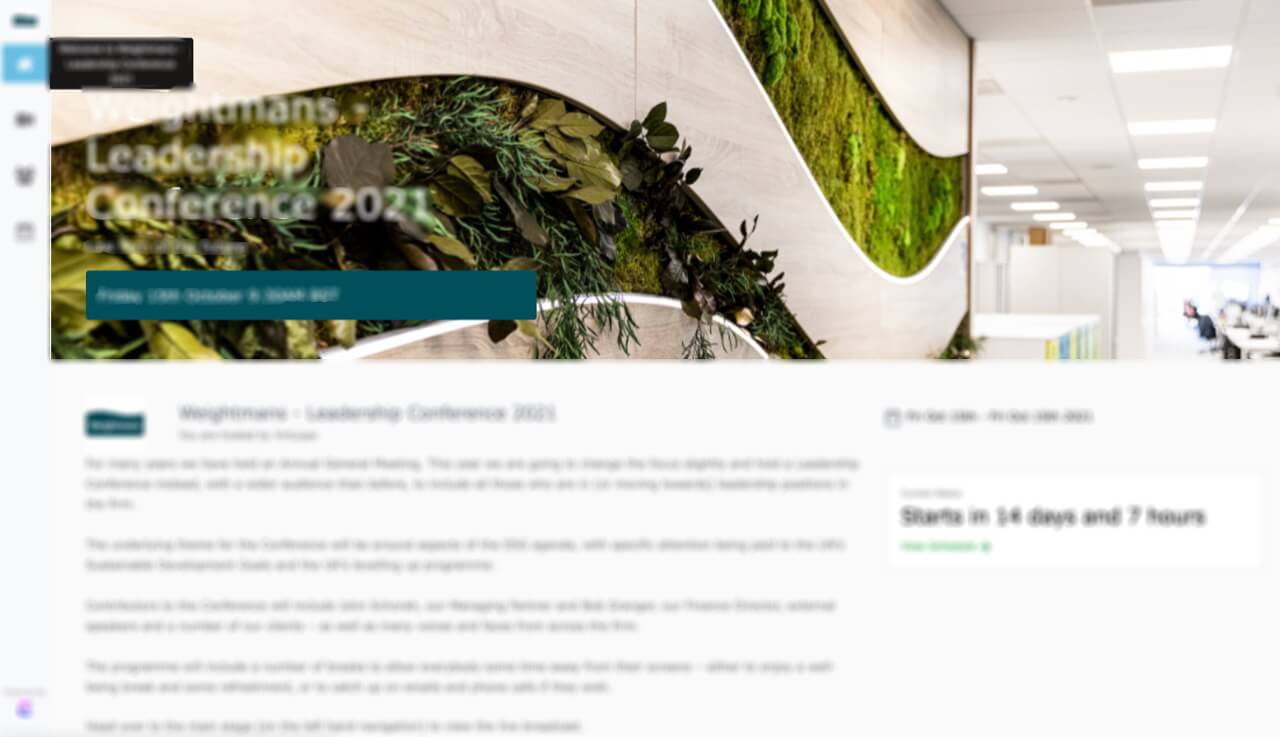As we look ahead to this year and beyond, it’s hard to imagine a business events calendar that doesn’t include an element of ‘virtual’, whether in a hybrid format or an entirely remote setting. The digital transformation of events has been accelerated by the pandemic and as marketers continue to value the benefits of virtual, we expect to see many more exciting developments in 2022. Here are four key areas that are set to shape hybrid and virtual events this year:
Greater Flexibility
Virtual is no longer a temporary fix for businesses pivoting online during the pandemic but a key part of any successful events strategy and this year will see even more hybrid events taking place than in 2021. Providing an incredible level of flexibility for both event organisers and attendees, the virtual and hybrid formats have revolutionised business events for good.
As event organisers continue to navigate the challenges of emerging new variants, the ability to switch formats quickly and easily without impacting on the overall audience experience, is crucial and flexibility is set to be at the heart of future business events.
From a delegate’s point of view, the option to participate from anywhere in the world is a huge advantage, saving on travel time and costs. As remote working drives flexibility during the working week, people will also expect more event content to be available on demand, either in bitesized edits or as easily accessible sessions.
Increased Interaction
Audience engagement is a key measure of success and event platforms have become increasingly sophisticated over the last couple of years in helping to drive more interaction among attendees.
Engagement tools such as breakout rooms, gamification features and photobooths are already standard features on many event platforms and this year we expect to see an even greater focus on participation, particularly as VR and 3D technology becomes more accessible. LinkedIn is also launching its own interactive virtual event platform this year, allowing hosts to run, record and promote events with tools for online attendees and hosts to have live conversations and moderate discussions. It will be interesting to see how this develops in 2022.
Sustainability
The environmental impact of business events is a growing concern and sustainability is set to be an important issue for event organisers in 2022 and beyond. While virtual and hybrid formats are generally kinder to the environment than in-person events, as they reduce the need for delegates to travel, there are steps we can all take to reduce our carbon footprints.
Event organisers can lead the way by making small changes to help reduce emissions such as compressing video and audio files before sharing with attendees, so that they use less bandwidth. Delegates should also be encouraged to use smaller devices and switch off their videos and microphones when they’re not interacting to reduce energy usage during virtual and hybrid events.
Professional Event Production
Audiences have grown so accustomed to attending virtual and hybrid events that high quality professional delivery is now expected. While audiences were fairly forgiving of any hiccups at the start of the pandemic, there is no room for avoidable technical glitches in 2022.
Event technology is evolving at a phenomenal pace and it’s vital for businesses to stay on top of the latest trends and developments. Virtual and hybrid events will look more polished this year with businesses investing more in event technology and expertise, whether they expand their in-house teams to include virtual event producers or they choose to partner with a specialist production company.
In an industry that is continuously evolving, 2022 already looks set to be another exciting year and it’s great to be a part of it. To find out how Virtuopo can help shape your virtual and hybrid events, contact the team on 0151 662 0275.





